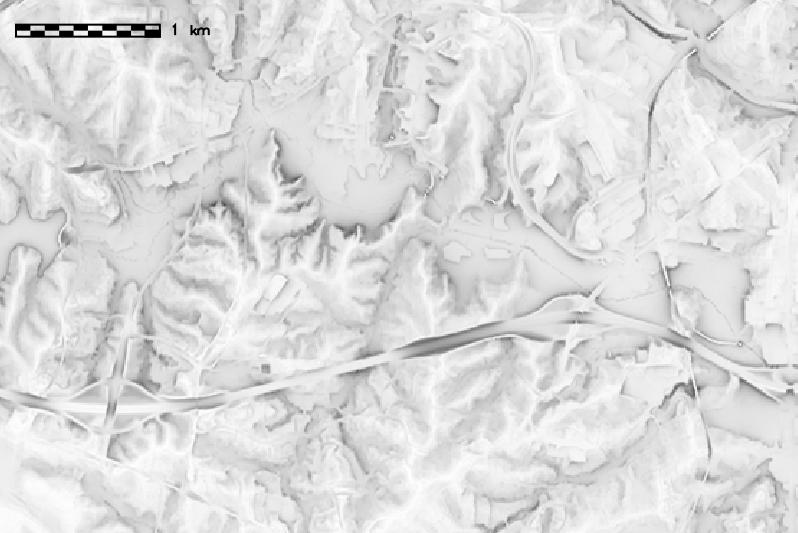
NAME
r.skyview - Computes Sky-View Factor visualization techniqueKEYWORDS
raster, visualizationSYNOPSIS
r.skyview
r.skyview --helpr.skyview [-n] input=name output=name ndir=integer [maxdistance=float] [color_source=string] [color_input=name] [color_table=string] [colorized_output=name] [basename=string] [--overwrite] [--help] [--verbose] [--quiet] [--ui]
Flags:
- -n
- Invert color table for colorization raster
- Ignored for input and color_input
- --overwrite
- Allow output files to overwrite existing files
- --help
- Print usage summary
- --verbose
- Verbose module output
- --quiet
- Quiet module output
- --ui
- Force launching GUI dialog
Parameters:
- input=name [required]
- Name of input raster map
- output=name [required]
- Name for output raster map
- ndir=integer [required]
- Number of directions (8 to 32 recommended)
- Options: 2-360
- Default: 16
- maxdistance=float
- The maximum distance to consider when finding the horizon height
- color_source=string
- Source raster for colorization
- Input and color_input are taken from input and color_input options respectively. The rest is computed using r.slope.aspect
- Options: input, color_input, slope, aspect, dxy
- Default: input
- input: use the raster from the input option
- color_input: use the raster from the color_input option
- slope: compute and use slope
- aspect: compute and use aspect
- dxy: compute and use second order partial derivative dxy
- color_input=name
- Custom raster map to be used for colorization
- color_table=string
- Color table for colorization raster (preset color table by default)
- If empty, the color table of the created raster is used (not used at all for input and color_input)
- Options: reds, blues, greens, oranges, sepia, aspectcolr
- colorized_output=name
- Colorized sky-view factor
- basename=string
- Set the basename for the intermediate maps
Table of contents
DESCRIPTION
Module r.skyview computes Sky-View Factor, a relief visualization technique. The value of each cell is given by the portion of visible sky (from that cell) limited by the surrounding relief. The values range from 0 to 1. The lighter the value is, the more open the terrain is.NOTES
Module r.horizon is used to compute elevation angles. When computing these elevation angles, only the celestial hemisphere is considered.EXAMPLES
We compute the sky-view factor map of the North Carolina sample dataset elevation map:g.region raster=elevation r.skyview input=elevation output=elevation_skyview ndir=8

SEE ALSO
r.horizon, r.relief, r.shaded.pca, r.local.reliefREFERENCES
- Zaksek K, Ostir K, Kokalj Z. Sky-View Factor as a Relief Visualization Technique. Remote Sensing. 2011; 3(2):398-415.
AUTHORS
Anna Petrasova, NCSU OSGeoRELLast changed: $Date: 2015-10-15 18:24:20 +0200 (Thu, 15 Oct 2015) $
SOURCE CODE
Available at: r.skyview source code (history)
Main index | Raster index | Topics index | Keywords index | Graphical index | Full index
© 2003-2019 GRASS Development Team, GRASS GIS 7.4.5svn Reference Manual